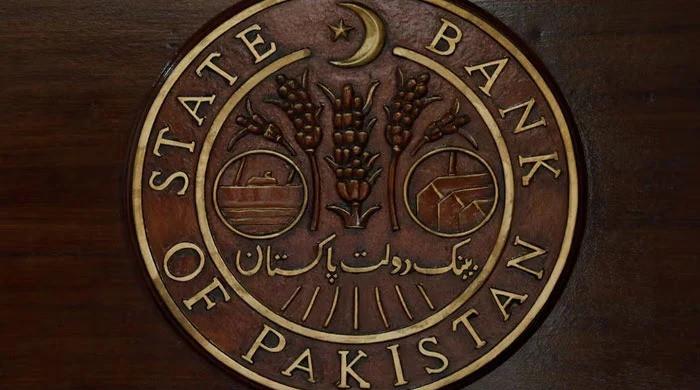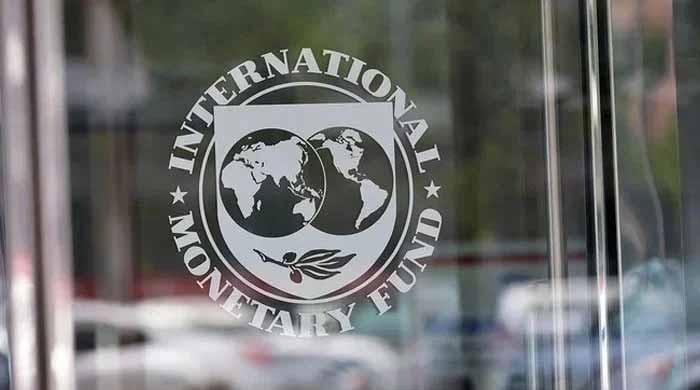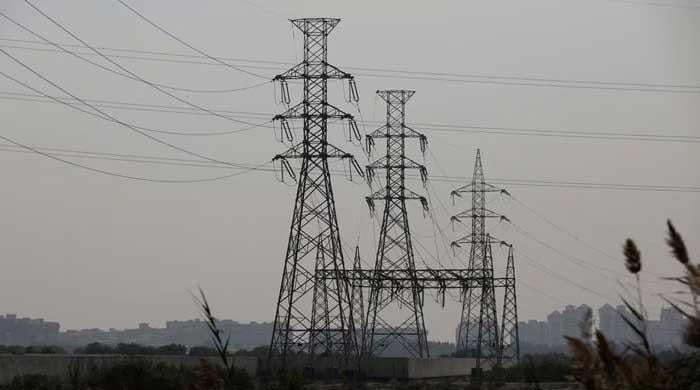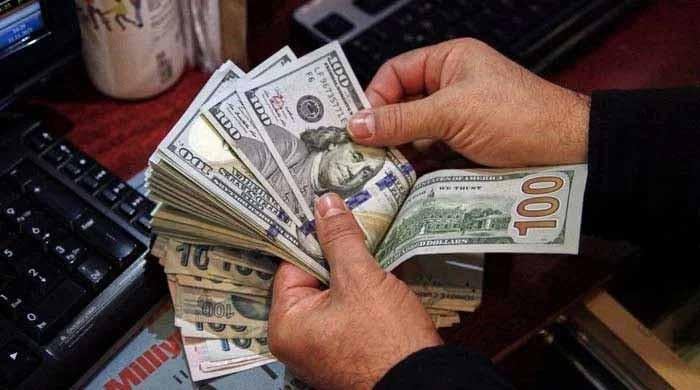IMF reaches staff-level agreement with Pakistan on $3 billion 'stand-by arrangement'
The staff-level agreement is subject to approval by the IMF executive board, says global lender
June 30, 2023
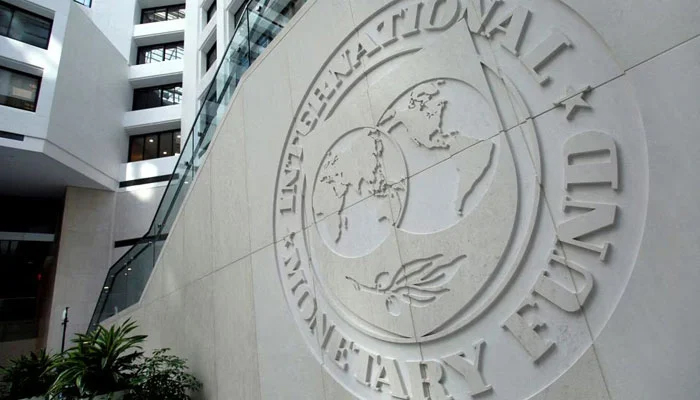
- IMF, Pakistan reach SLA on nine-month SBA of about $3 billion.
- "SBA builds on efforts under Pakistan’s 2019 programme."
- Deal will support immediate efforts to stabilise economy: IMF.
Pakistan and the International Monetary Fund (IMF) on Friday reached a long-awaited staff-level agreement (SLA) on $3 billion “stand-by arrangement” (SBA), the global lender announced.
“I am pleased to announce that the IMF team has reached a staff-level agreement with the Pakistani authorities on a nine-month Stand-by Arrangement (SBA) in the amount of SDR2,250 million (about $3 billion or 111 percent of Pakistan’s IMF quota),” Nathan Porter, the IMF’s Mission Chief to Pakistan, said in a statement.
“The new SBA builds on the authorities’ efforts under Pakistan’s 2019 EFF-supported programme which expires end-June. This agreement is subject to approval by the IMF’s Executive Board, which is expected to consider this request by mid-July,” the statement added.
The $3 billion funding, spread over nine months, is higher than expected for Pakistan. The country was awaiting the release of the remaining $2.5 billion from a $6.5 billion bailout package agreed in 2019, which expires on Friday (today).
"Alhumdulillah," tweeted Finance Minister Ishaq Dar after the deal was announced early on Friday. Dar had said on Thursday the deal was expected any time soon.
With sky-high inflation and foreign exchange reserves barely enough to cover one month of controlled imports, Pakistan has been facing its worst economic crisis in decades, which analysts say could have spiralled into a debt default in the absence of the IMF deal.
The deal comes after an eight-month delay and offers some respite to Pakistan, which is battling an acute balance of payments crisis and falling foreign exchange reserves.
In the statement issued today, the IMF said since the completion of the combined seventh and eight reviews under the 2019 EFF in August 2022, the Pakistan’s economy faced several external shocks such as the catastrophic floods in 2022 that impacted the lives of millions of Pakistanis and an international commodity price spike in the wake of Russia’s war in Ukraine.
As a result of these shocks as well as some policy missteps — including shortages from constraints on the functioning of the forex market— economic growth has stalled. “Inflation, including for essential items, is very high. Despite the authorities’ efforts to reduce imports and the trade deficit, reserves have declined to very low levels,” the IMF’s statement said.
Moreover, it said liquidity conditions in the power sector also remain acute, with further buildup of circular debt and frequent loadshedding.
The global lender said new SBA will support Pakistan’s immediate efforts to stabilise the economy from recent external shocks, preserve macroeconomic stability and provide a framework for financing from multilateral and bilateral partners.
“The new SBA will also create space for social and development spending through improved domestic revenue mobilisation and careful spending execution to help address the needs of the Pakistani people.”
The IMF further added that steadfast policy implementation is key for Pakistan to overcome its current challenges, including through greater fiscal discipline, a market determined exchange rate to absorb external pressures, and further progress on reforms, particularly in the energy sector, to promote climate resilience, and to help improve the business climate.
Painful reforms
The federal government has taken a slew of policy measures since an IMF team arrived in Pakistan earlier this year, including a revised 2023-24 budget last week to meet the lender's demands.
Other adjustments demanded by the IMF before clinching the deal included reversing subsidies in power and export sectors, hikes in energy and fuel prices, jacking up the key policy rate to 22%, a market-based currency exchange rate and arranging for external financing.
It also got Pakistan to raise over 385 billion rupee ($1.34 billion) in new taxation through a supplementary budget for the 2022-23 fiscal year and the revised budget for 2023-24.
The painful adjustments have already fueled all time high inflation of 38% year-on-year in May.
"The FY24 budget advances a primary surplus of around 0.4 percent of GDP by taking some steps to broaden the tax base and increase tax collection from under-taxed sectors," Porter said, adding it also ensured space to strengthen support for the vulnerable through a cash handout programme.
He said it will be important that the budget is executed as planned, and authorities resist pressures for unbudgeted spending or tax exemptions in the period ahead.
"This new programme is far better than our expectations," said Mohammed Sohail of Topline Securities, adding, there were a lot of uncertainties on what will happen after June 2023 as there will be a new government coming to power.
"This funding of 3 billion dollars and for 9 months will definitely help restore some investor confidence," he said.
‘Rupee expected to appreciate against dollar’
Renowned businessman Arif Habib termed the IMF’s agreement a positive development saying “this will definitely increase the business confidence” in the country.
Speaking to Geo News, he said the bilateral and multilateral donors will also start dealings with Pakistan after the IMF agreement.
“International investors, commercial markets and non-residents Pakistanis confidence [in the economy] will also improve,” he added.
Moreover, Habib said IMF-dictated reforms will ensure stability and bring down inflation in the country.
He also anticipated that the value of rupee is also expected to appreciate against the US dollar.
“[…] 5 to 7% improvement (meaning 15 to 20 rupees) is expected in the value of rupee against the dollar,” he added.
PM credits Dar for IMF bailout package
Prime Minister Shehbaz Sharif hailed signing of the agreement with IMF saying the deal will help Pakistan in achieving economic stability.
“Alhamdulillah, I am pleased to announce that Pakistan has reached a Staff-Level Agreement with the IMF on a nine-month US$3 billion Stand-By Arrangement. This Arrangement will help strengthen Pakistan’s foreign exchange reserves, enable Pakistan to achieve economic stability, and put the country on the path of sustainable economic growth, Insha’Allah,” he wrote on his official Twitter handle.
PM Shehbaz appreciated the efforts and hard work of Finance Minister Ishaq Dar and his team at the Ministry of Finance for striking a deal with IMF.
“I would also like to thank MD IMF Kristalina Georgieva and her team at the IMF for their cooperation and collaboration, especially during the course of last week,” he added.
($1 = 286.1500 Pakistani rupees)
— With additional input from Reuters




